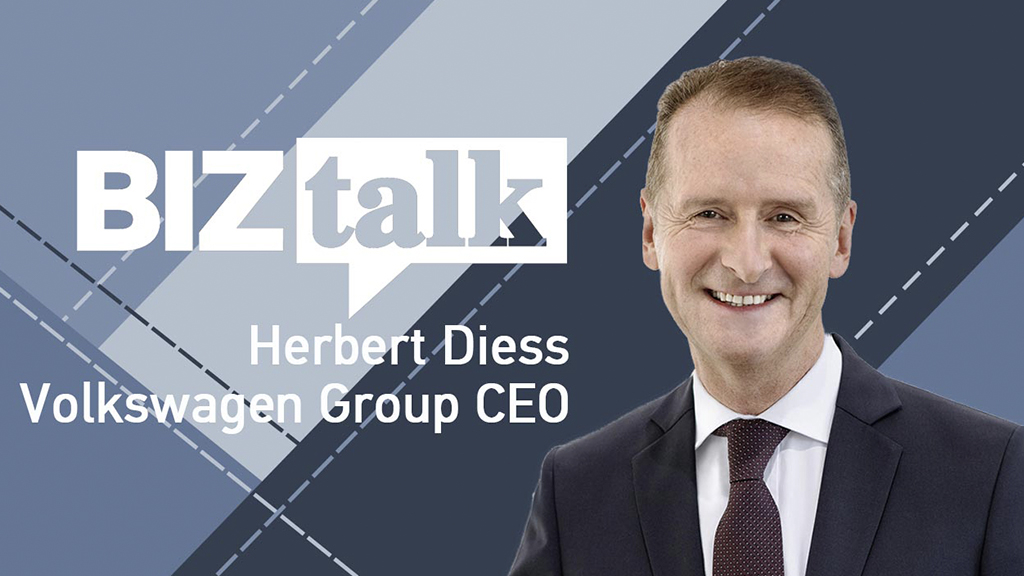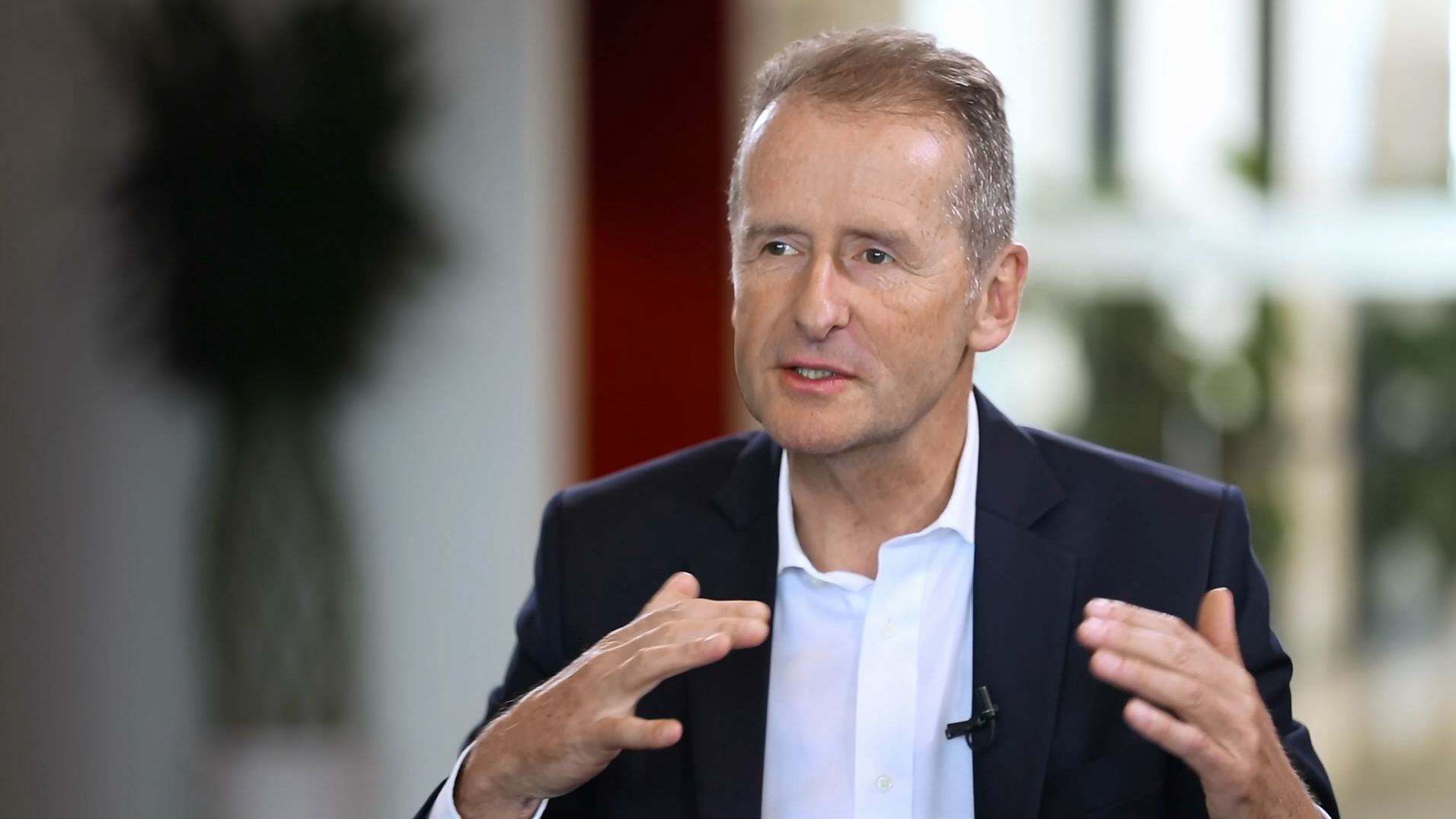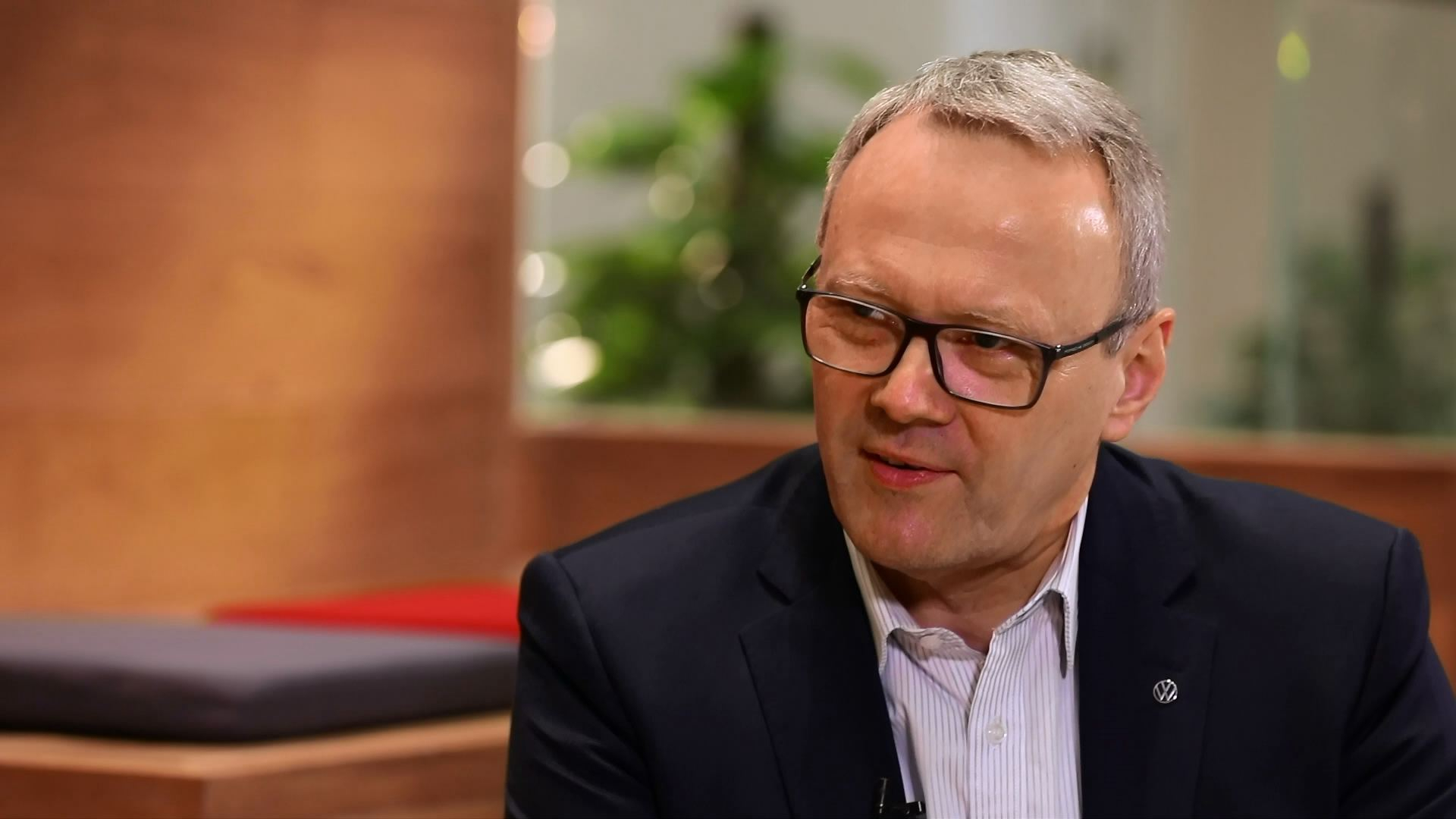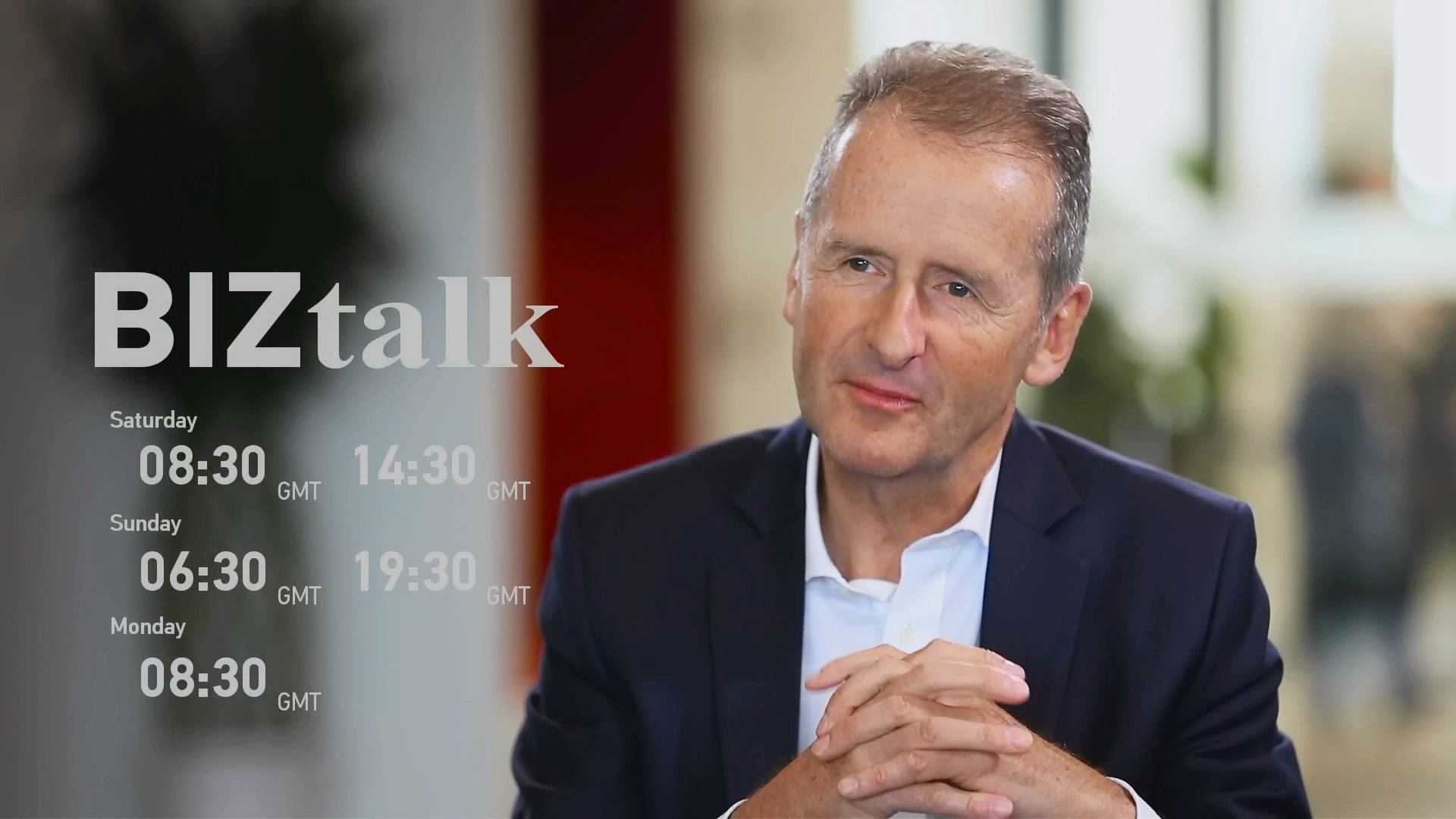02:00

The energy transition has come at a time when the global automotive industry is slowing. Traditional original equipment manufacturers face pressure from multiple fronts. How do traditional automakers overcome the challenges ahead? CGTN BizTalk meets Volkswagen Group CEO Herbert Diess and Volkswagen Group China CEO Stephan Wollenstein to learn more.
With more than 10.8 million vehicles sold in 2018, Volkswagen has squeezed past Toyota as the world's number one carmaker. The 82-year-old company now comprises of 12 brands.
Spin-off strategy not an option
At a time when the auto industry is under pressure, does it really make sense for Volkswagen to own such a variety of brands?

CGTN BizTalk meets Volkswagen Group CEO Herbert Diess. /CGTN Photo
CGTN BizTalk meets Volkswagen Group CEO Herbert Diess. /CGTN Photo
Diess says that different brands address different customer groups worldwide, and all brands are growing rapidly. He told CGTN that there was no need to "spin off one brand" and the group was careful to avoid overlaps.
"So far we are able to finance growth. All brands are growing very rapidly. Some of them are gaining new customers, entering new markets… there is no need to, let's say, spin off one brand," Diess said. "We should be probably a little bit more focused on which direction we give to, which brands to orient. We should avoid overlaps."
The group comprises of 12 brands from seven European countries: Volkswagen Passenger Cars, Audi, SEAT, ŠKODA, Bentley, Bugatti, Lamborghini, Porsche, Ducati, Volkswagen Commercial Vehicles, Scania and MAN, according to its official website. The three best-selling brands are Volkswagen, Audi and Skoda. But the highest revving engine is Porsche, bringing in almost a third of the group's profits, despite making just 10 percent of sales.
Sino-German joint venture passenger car manufacturer FAW-Volkswagen officially launched its sub-brand "Jetta" in March last year, together with a new brand logo for Jetta and three new models. The company claimed the new brand aims at satisfying the demands of young Chinese car buyers and competes with homegrown auto brands such as Great Wall and Geely.
Stable outlook for China's auto market
China's auto sales dropped 8.2 percent year on year to reach 25.77 million automobiles last year as demand in the world's biggest auto market was dragged down by the drawn out China-U.S. trade war, tighter emission standards and retreating subsidies for new-energy vehicles (NEVs). Sales of passenger vehicles went down 9.6 percent from one year earlier to settle at 21.44 million units, while those of NEVs decreased four percent to 1.2 million.
The whole industry is undergoing a profound transformation and upgrading, making survival difficult for automakers operating in China. The protracted ebb left Ford and General Motors with a lackluster performance in the past year. Ford proclaimed Monday its 2019 sales fell 26 percent to end up with 567,854 vehicles, selling less than half of the 1.27 million vehicles it sold at its peak in 2016. GM also posted its biggest ever sales drop in the China market, roughly 15 percent last year.
However, Volkswagen became one of the strongest performing automakers for all of 2019 by delivering 4.23 million vehicles to customers on the Chinese mainland and in Hong Kong, exceeding 2018's record numbers despite the softening car market. It also launched eight locally-produced SUVs in the market since the fourth quarter of 2018.

CGTN BizTalk meets Volkswagen Group China CEO Stephan Wollenstein. /CGTN Photo
CGTN BizTalk meets Volkswagen Group China CEO Stephan Wollenstein. /CGTN Photo
Volkswagen Group entered the China market in 1984, one of the first foreign automakers riding the wave of the country's reform and opening-up policy. 35 years later, Stephan Wollenstein, CEO of Volkswagen Group China, still strongly believes that the second largest economy has great potential to reach 26 to 30 million in sales. Wollenstein stressed that somebody who is a real global player has "no chance" of staying away from China.
And Diess is also bullish on the auto sales growth in China, saying that the German hardware-oriented carmaker could benefit greatly from China's high-skilled talent in software as well as faster productivity in their factories.
The automaker has taken China as a key battleground as it presses ahead with electrification via funneling billions of dollars into product development. The company plans to invest some four billion euros in the Chinese market next year and expects to sell approximately 500,000 NEVs per year by 2023.

Volkswagen Group CEO Herbert Diess. /CGTN Photo
Volkswagen Group CEO Herbert Diess. /CGTN Photo
BizTalk is a 30-minute business interview show that airs on Saturdays from 4:30 p.m. to 5:00 p.m. BJT and rebroadcast throughout the weekend. The show is also posted on CGTN's social media platforms, including Facebook and YouTube.
Tune in to view the full episode on Saturday at 4:30 p.m. BJT.